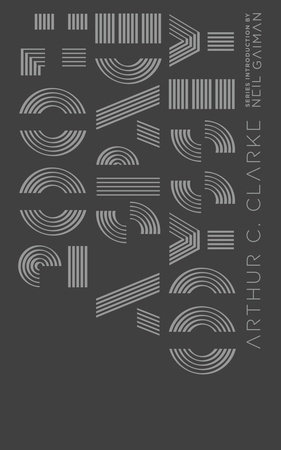2001: A Space Odyssey by Arthur C. Clarke
(New York: Penguin, 1968/2016), 258
Plot Summary
- Primeval Night (Moon-Watcher): extraterrestrial influence on the evolution of man
- TMA-1 (Dr. Haywood Floyd): discovering the magnetic device buried on the moon
- Between Planets (David Bowman, Frank Poole, HAL 9000): journey to Saturn, HAL 9000's revolt, and Poole's death
- The Moons of Saturn (David Bowman): single journey to Saturn and Tycho
- Through the Gate (David Bowman): becomes Star-Child and returns to Earth
Some Quotes
- Interesting references for having been written in 1968:
- Chinese Empire (44)
- Reusable boosters (48)
- Neural networks (117)
- Foreword: "One day we shall meet our equals, or our masters, among the stars" (xx)
- "...but greater and later philosophers than Moon-Watcher would be prepared to overlook equally striking exceptions to their theories." (11-12)
- "They had learned to speak, and so had won their first great victory over Time. Now the knowledge of one generation could be handed on to the next, so that each age could profit from those that had gone before. Unlike the animals, who knew only the present, Man had acquired a past; and he was beginning to grope toward a future." (36)
- "The text was updated automatically on every hour; even if one read only the English versions, one could spend an entire lifetime doing nothing but absorbing the everchanging flow of information from the news satellites. It was hard to imagine how the system could be improved or made more convenient. But sooner or later, Floyd guessed, it would pass away, to be replaced by something as unimaginable as the Newspad itself would have been to Caxton or Gutenberg. There was another thought which a scanning of those tiny electronic headlines often invoked. The more wonderful the means of communication, the more trivial, tawdry, or depressing its contents seemed to be." (64)
- Generalism: "Fifty years ago, he would have been considered a specialist in applied astronomy, cybernetics, and space propulsion systems-yet he was prone to deny, with genuine indignation, that he was a specialist at all. Bowman had never found it possible to focus his interest exclusively on any subject; despite the dark warnings of his instructors, he had insisted on taking his Master's degree in General Astronautics--a course with a vague and woolly syllabus, designed for those whose IQs were in the low 130s and who would never reach the top ranks of their profession. His decision had been right; that very refusal to specialize had made him uniquely qualified for his present task. In much the same way Frank Poole-who sometimes disparagingly called himself "General Practitioner in space biology"-had been an ideal choice as his deputy." (122)
- 2-hr study per day (122)
- "Despite all the electronic read-outs, there are times when good old-fashioned printed material was the most convenient form of record" (151)
- "Work is the best remedy for any shock." (215)
- "Any man, in the right circumstances, could be dehumanized by panic." (221)
- Niels Bohr: "Your theory is crazy—but not crazy enough to be true." (225)
- "But was even this the end? A few mystically inclined biologists went still further. They speculated, taking their cues from the beliefs of many religions, that mind would eventually free itself from matter. The robot body, like the flesh-and- blood one, would be no more than a stepping-stone to something which, long ago, men had called "spirit." And if there was anything beyond that, its name could only be God." (227)
- "At first, needing the companionship of the human voice, he had listened to classical plays-especially the works of Shaw, Ibsen, and Shakespeare or poetry readings from Discovery's enormous library of recorded sounds. The problems they dealt with, however, seemed so remote, or so easily resolved with a little common sense, that after a while he lost patience with them. So he switched to opera--usually in Italian or German, so that he was not distracted even by the minimal intellectual content that most operas contained. This phase lasted for two weeks before he realized that the sound of all these superbly trained voices was only exacerbating his loneliness. But What finally ended this cycle was Verdi's Requiem Mass, which he had never heard performed on Earth. The "Dies Irae," roaring with ominous appropriateness through the empty ship, left him completely shattered; and when the trumpets of Doomsday echoed from the heavens, he could endure no more. Thereafter, he played only instrumental music. He started with the romantic composers, but shed them one by one as their emotional outpourings became too oppressive. Sibelius, Tchaikovsky, Berlioz, lasted a few weeks, Beethoven rather longer. He finally found peace, as so many others had done, in the abstract architecture of Bach, occasionally ornamented with Mozart." (229-230)
Topic: Science Fiction
Source:
Bibliography
file:(~2001 A Space Odyssey)
-
-
Created: 2022-12-01-Thu
Updated: 2022-12-04-Sun
